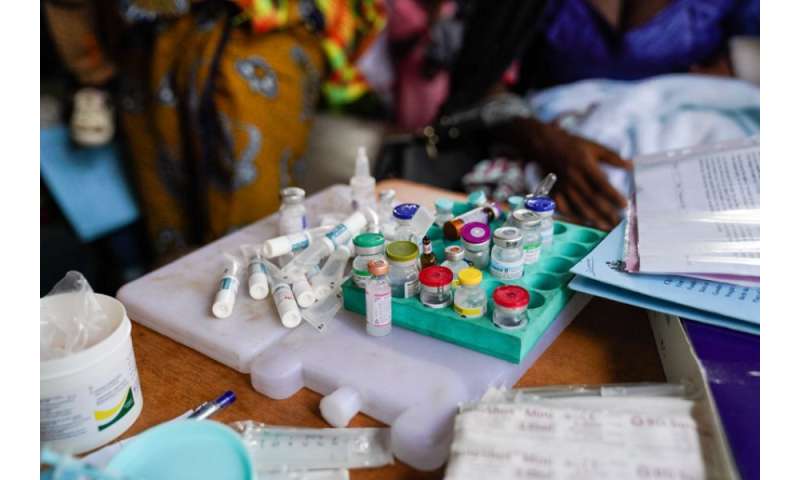
The best of science, entrepreneurship and politics is required to avoid “turning the clock back on immunization,” argue a group of global health experts in a new Nature Review.
Authored by scientists from the London School of Hygiene & Tropical Medicine (LSHTM), the World Health Organization (WHO), the Africa Centres for Disease Control and Prevention, MRC Unit The Gambia at the LSHTM, and the Center for Vaccine Development, Bamako, Mali, the article describes four hurdles that must be overcome to ensure sustainable impact. It also highlights actions required to achieve “the full potential of immunization for human health and society.”
Vaccines are one of the most successful health interventions, and a world without vaccines would be unimaginable in terms of human lives lost and societal costs . A decade ago, WHO, UNICEF and the World Bank estimated that routine childhood immunization programs were preventing more than 2.5 million deaths every year.
Vaccination is the only medical intervention needed by every individual on the planet. However, progress in vaccine coverage is uneven and stalling, threatening hard-won gains and raising uncertainty on future advances in human health. Vaccine-preventable diseases such as measles are on the rise again and vaccine hesitancy and refusal are occurring around the world. In addition, major infectious diseases are still lacking an effective vaccine for their control.
https://youtube.com/watch?v=K55CDFHVBRI%3Fcolor%3Dwhite
The development of new vaccines is vital. Unfortunately, most promising early vaccine candidates in the discovery phase never make it as a safe and effective end product. To address this challenge, as well as to ensure sustainable immunization in every community, the authors identify four hurdles that must be overcome:
- “The valley of death’ from discovery to early clinical development means few discoveries make it to full scale development.
- Moving from early clinical development to large and expensive efficacy trials, a phase which incurs two-thirds of total costs of new vaccine development.
- The path from vaccine licensure to broad scale implementation which depends on policy recommendations, cost and effectiveness deliberations, and political priorities.
- Achieving sustainable vaccination programs, including community and individual acceptance of immunization.
“Going forward we need stronger leadership and funding, people-centered immunization programs, and to address vaccine confidence and coverage,” said Professor Peter Piot, Director of the London School of Hygiene & Tropical Medicine and first author of the Review. “Investment in research and innovation is also crucial. Without these, the full potential of immunization will remain under threat.”
Professor Beate Kampmann, Director of the Vaccine Centre at the London School of Hygiene & Tropical Medicine and a co- author, said: “It’s hard to imagine a world without vaccines. Their contribution to human health, security and prosperity has been matched by few other activities in health and development. However, the current global outbreaks of measles and lack of effective vaccines against infections like HIV and Tuberculosis are also a stark reminder that the agenda for immunization is unfinished.
Professor Heidi Larson, Director of the Vaccine Confidence Project at the London School of Hygiene & Tropical Medicine, and a co-author, said, “In 2019, WHO named vaccine hesitancy as one of the top ten global health threats. Confidence issues are complex and highly varied by setting and vaccine. They must be addressed up front and be an integral part of immunization programs. Approaches to vaccine uptake need to take into account the social, historical and political realities of the public for whom information alone is not the antidote to vaccine reluctance.”
Source: Read Full Article
